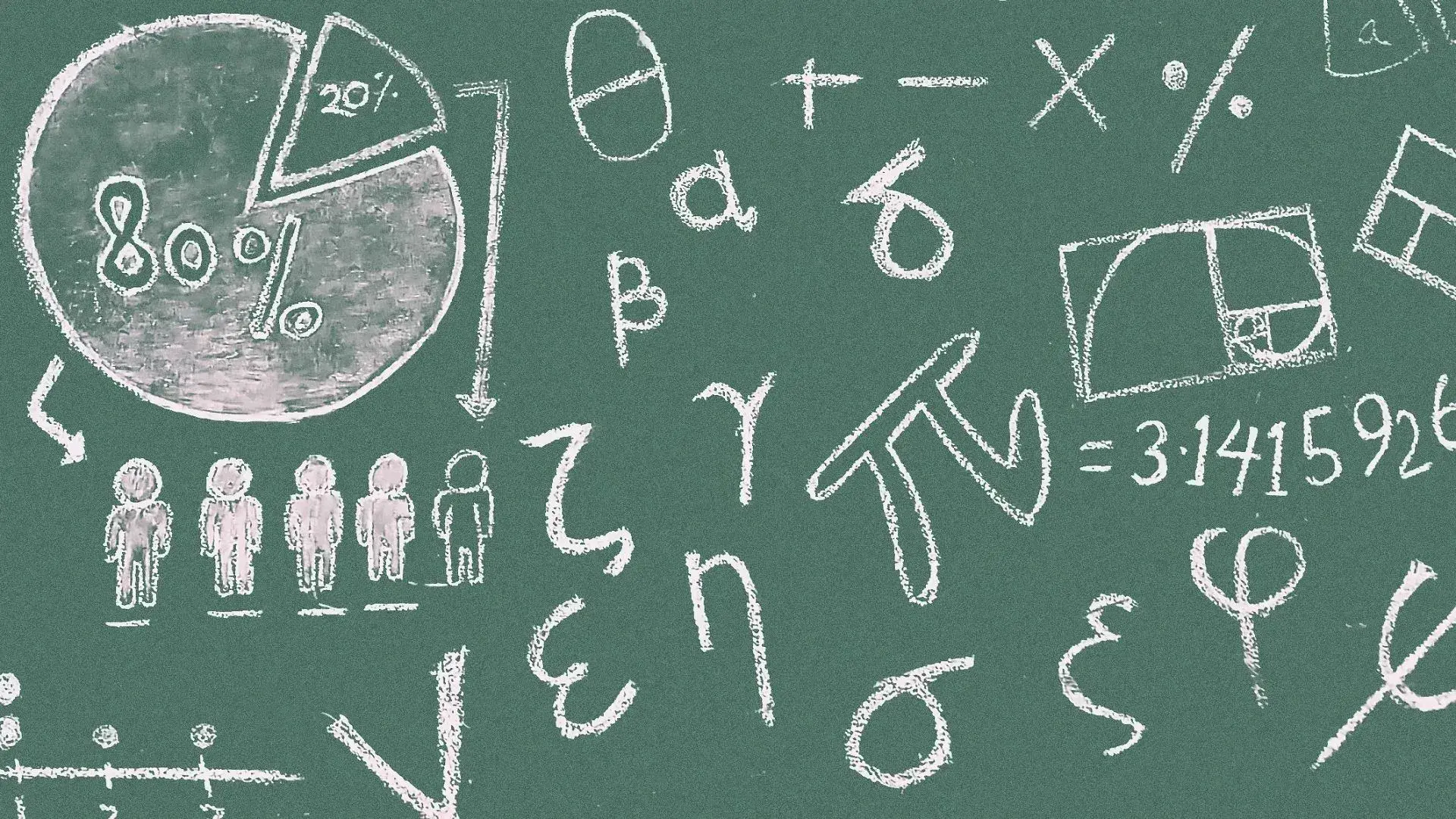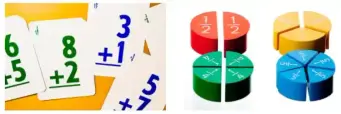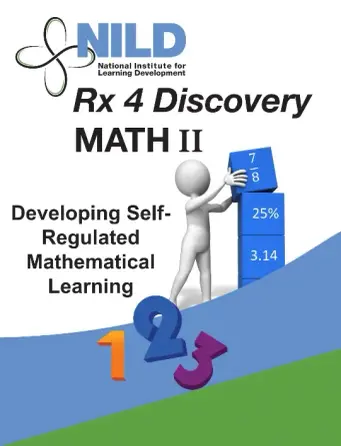
Written By: Kari Bondar
April 22, 2022

“Math and middle schoolers don’t mix!” This statement feels so true to so many of my middle school students as they meet me on the first day of our small group math elective. I am greeted with looks of frustration, fear, and even a touch of defiance. I understand them. I am not surprised by their needs, their fears, or insecurities. They have valid reasons for each of these feelings. But I look right back, confident that their view of both themselves and math will change before they walk out of class on the last day. And I know this because I have experienced it before! I have witnessed how small group math intervention can have a positive, mind-shifting effect on our most reluctant students.
I started my career as a 5th-grade math teacher. I have always loved math and enjoyed the upper elementary age group, so this placement seemed like the perfect fit. However, as time went on, I found myself invigorated by certain aspects of the job and frustrated by others. It was encouraging to watch some of the students grow in their math understanding and catch the vision of how engaging and enjoyable math could be. I was encouraged to see some of them begin to believe in themselves as mathematicians. But, like many other teachers who have chosen to become educational therapists, I could not be satisfied with the fact that only some of my students were experiencing this joy and growth. Others walked away from 5th grade with an inflated sense of confidence. They were proficient at completing the tasks I gave them because they had learned to memorize facts and rules and were sure that this would carry them through their middle and high school years. This concerned me. Others left my class with an exaggerated sense of failure, sure that they were just not meant to be good at math. They didn’t feel like the chosen few who were destined to succeed. They couldn’t recognize the great potential and math mind I saw in them. They walked away defeated. I couldn’t let this continue.

Following my time in fifth grade, I became an NILD Educational Therapist, working one-on-one with students. Throughout all levels of NILD training, I learned how educational therapy could bring about lasting change and bring hope to struggling students. When introduced to Rx 4 Discovery Math, I was overjoyed to find a system of math intervention that filled the potholes of young math students’ number sense, enabling them to access the math instruction they received in class. My greatest desire was still to reach those older struggling math students before they moved into their high school years and faced the complex math in their future. I couldn’t ignore the compelling need to intervene with these middle school math students.
To accurately prescribe an intervention, we as educators must first become good diagnosticians. We need to know why so many students struggle in middle school mathematics if we are to understand how to strengthen their skills properly. We must be fully aware of what causes so many students to give up on math in these challenging middle years. The best analogy that I can think of is reading instruction and how it changes over time. There is a drastic shift in upper elementary school when students transition from learning to read into reading to learn. Students who have learned the basic mechanics of phonics and decoding are pushed to become proficient readers who are adept at comprehending and analyzing challenging content. Vocabulary becomes much more expansive, and literary structure requires the application of strategies for dealing with complex structure and figurative language. Rote memory of phonics rules and sight words is no longer enough to ensure success. The same is true of math learning. Younger mathematicians can often get by memorizing math facts and procedural knowledge of algorithms. Learning the ‘how’ of mathematics is sufficient, and some students can slide by without a solid grasp of the ‘why.’ But somewhere in upper elementary, students are faced with change as they move towards middle school.
 With the introduction of fractions, decimals, and percent, all of the rules seem to shift! The sheer volume of math vocabulary grows exponentially, and that vocabulary is critical to understanding the tasks presented. Word problems and practical application problems become the norm, and students are asked to shift from knowing procedures to using those procedures in multi-step, complex situational challenges. The ‘how’ of math is no longer the focus and the ‘why’ of math becomes critical. Add to all of this the social, emotional, and physical challenges that already exist for middle school students. As educators, we know that middle school students are plagued by peer pressure, the natural stresses of working collaboratively with classmates whose opinions matter so much, and an innate fear of making mistakes. This destructive combination can leave many of our struggling learners feeling overwhelmed and defeated. We need to provide intervention before these students lose hope.
With the introduction of fractions, decimals, and percent, all of the rules seem to shift! The sheer volume of math vocabulary grows exponentially, and that vocabulary is critical to understanding the tasks presented. Word problems and practical application problems become the norm, and students are asked to shift from knowing procedures to using those procedures in multi-step, complex situational challenges. The ‘how’ of math is no longer the focus and the ‘why’ of math becomes critical. Add to all of this the social, emotional, and physical challenges that already exist for middle school students. As educators, we know that middle school students are plagued by peer pressure, the natural stresses of working collaboratively with classmates whose opinions matter so much, and an innate fear of making mistakes. This destructive combination can leave many of our struggling learners feeling overwhelmed and defeated. We need to provide intervention before these students lose hope.
If we as educators are to meet the needs of our most challenged math students in the middle years, we need to be intentional about our instruction, making a clear distinction between our intervention and tutoring. We need to concentrate on vocabulary, internalization of foundational concepts, and inquiry-based challenges. While focusing on all of these skills, we also need to be building a strong growth mindset, intense curiosity, and an ability to become self-motivated, self-regulated learners. While this is an immense undertaking, it is not impossible. When Rx 4 Discovery Math II was introduced two years ago, it was the blueprint I had been searching for to build an effective program that encompassed all of these components. While each school and each instructor will build an intervention that is unique to their situation and student needs, there are some aspects that will remain constant. To describe these and give an option for implementation, I’ll share a glimpse into the Rx 4 Discovery Math II group that we have incorporated into our middle school here.

I am privileged to spend three mornings each week with a small group of 6th, 7th, and 8th-grade students in an elective that we have lovingly named “Recreational Math”. Every day my students begin with a warm-up to get their minds to shift from whatever has been occupying their thoughts and prepare them to ‘think-math’ for the next hour. We might use a quick verbal game of What’s My Rule or Guess My Number, or be challenged by a mental arithmetic task. We might use a Quick Draw activity to build vocabulary and enter into spatial and geometric thinking. No matter the task, all students are activating their problem-solving minds and engaging in positive, constructive mathematical conversations.
We then move on to whole group tasks with the intention of building a conceptual understanding of fractions, decimals, percent, and algebraic thinking. That might look like recognizing relationships by using fraction math squares. It might take the form of building inferential, hypothetical thinking by completing fraction/decimal benchmarks. They could possibly be strengthening their visual understanding of fractional concepts through fraction unit activities. In all of these activities, they are working on concepts, concentrating on process over product, practicing critical reflection, and developing flexibility of thinking.
After our whole group math task, we work through our challenge of the day. These challenges are non-standard problems that are presented in the form of real-world, situational inquiry problems that require the students to use their prior knowledge and choose strategies according to what would be most effective for the particular situation or type of problem. Working in their small groups or split into partner teams, they have to struggle to make sense of the problem and come to an agreement about how to go about solving it. As they work, they are learning to pay attention to their thinking, evaluate their strategies for effectiveness, and adjust as necessary. Once they finally come to a solution, they have to work together to determine how they are going to explain both their process and their solution.
Before we finish each day, we take a good chunk of time to reflect on what was learned. The students discuss vocabulary and concepts that were solidified in their minds. They reflect on their interactions and how they grew as self-regulated learners as a result of their willingness to listen to each other and be flexible. We reflect on growth, both personally and as a mini-community.

Woven into every task and every interaction is the least tangible but perhaps the most impactful aspect of this system of intervention. As the students are developing their skills, their conceptual understanding, and their self-regulation, they are trading in their anxiety and frustration for confidence. They are overcoming the many social obstacles to learning and are contributing to the math discussions that are essential to group work.
So here I am again - at the end of a school year, looking back on a year of learning. This reflection looks very different than it did at the end of a year teaching 5th grade. This year, I get to look back on a year of Rx 4 Discovery Math II and reflect. Our ‘Recreational Math’ group started out with every insecurity, anxiety, and distaste for math that was possible. But as we finish up the year, we have developed a joyful atmosphere where we willingly take on challenges rather than avoid them. We have learned to challenge each other and disagree respectfully. We have committed to supporting each other and being vulnerable enough to admit our areas of weakness.
We are beginning to believe that hard things can still be fun and that persevering produces results. Some days are more successful than others. It’s messy and oh so very ‘middle school.’ But little by little, these precious students are learning to see their value as mathematicians and to embrace the joy of math! And that makes every messy moment worth it!
If you’ve ever considered providing math intervention for our middle school learners, I would recommend checking out Rx 4 Discovery Math II. Is this program going to make us all amazing math intervention specialists with a math Midas’ touch? No. Will all of our students suddenly get A’s in math classes and go on to pursue careers in engineering? No. But will Rx 4 Discovery Math II provide knowledge and materials that can produce long-lasting, deep-seated, positive change for our students mathematically? Absolutely!
Rx 4 Discovery Math - II Video Vignette
Student Testimonial - Sophya
Student Testimonial - Mason

By Kari Bondar, PCET